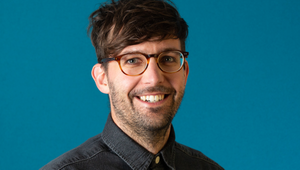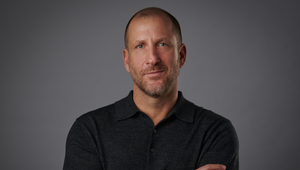
A Woman Walks Into a Bar

Image credit: Aleksandr Popov via Unsplash
Picture this. It’s your 32nd birthday, your team’s laid on Friday drinks at the Soho office, and all your work besties are there. As front desk starts closing up, you think “fuck it” and suggest post-work drinks. No plans till tomorrow, and it is your birthday after all.
You head to The Sun and 13 Cantons. A few mates from nearby join in. After some much deserved outdoor pints, it gets chilly, so someone suggests Garlic and Shots – because why not garlic tequila in a gothic dungeon? A couple of shots in, you pop upstairs for a cigarette, you still haven’t kicked the habit after a few drinks.
There’s a guy nearby on his own. You catch eyes, smile, he gestures to join. You nod. He’s funny, smart, and polite. There’s a vibe. He asks for your number, so you say yes. You both say maybe you’ll see each other for the next cigarette break.
Back with your friends, someone suggests going over to Soho Arts Theatre Club – enough thrash metal for one night. An hour later, you go out for another smoke. He’s messaged, asks if you’re still in the bar, you say no, but that you’re across the road. Before you finish your cigarette, he’s walking towards you, smiling. You go back downstairs together.
It’s packed now, and you can’t spot your mates, they are probably dancing or in the loos. He offers you a drink. You say sure. Spicy margs in hand, you hit the dance floor. An Arctic Monkeys track comes on, his favourite – but his vibe shifts. He starts getting too handsy, too grabby…
I don’t need to continue this story, you get the idea, this story may be very familiar to you if you’re in the 71% of women in the UK who have experienced sexual harassment. And if you’re from other marginalised groups like the LGBTQIA+ community, you’re even more likely to experience sexual violence.
You may be wondering why I’m telling you all this. Well, it’s because the other week I came across this article by a 32 year old woman called Annie who had experienced harassment in a bar. She’s started chatting to a guy in a bar who seemed charming enough and then the all-too-familiar story of things turning sinister rears its ugly head, she asks him to stop and he doesn’t listen. Annie managed to escape momentarily to the toilet and saw the ‘Ask for Angela’ campaign posters, so she breathed a sigh of relief and thought she had a fuss-free escape. She went back to the bar and calmly asked for Angela and was met with a blank stare. Fortunately, Annie managed to escape (mostly) unscathed after bluntly asking for help, but this could’ve been a very different story.
I’m not attacking the campaign, I think it’s a brilliant campaign that will no-doubt have helped many, many people and I applaud anyone doing the hard graft in this space. But, if you rely on posters and straplines to get your message across but it’s not carried through by the people on the frontline who are actually delivering the campaign, there are potentially disastrous consequences.
Public spaces like bars, restaurants, festivals and transport all owe us a duty of care to try and prevent sexual harassment and put processes into place to support you should you experience this. And so do our workplaces. The Worker Protection Act 2023 came into force in October last year, introducing a legal duty for employers to take proactive steps to prevent sexual harassment in the workplace and potentially huge compensation pay offs at employment tribunals if they don’t.
The definition of sexual harassment is any unwanted behaviour of a sexual nature, this could range from someone insinuating something about your sex life, propositioning you or making sexual jokes, all the way up to sharing pornographic images and sexual assault. Basically anything that gives you the ick. But lots of people still don’t understand that their behaviour could be considered harassment. Employers have a responsibility to educate teams on this, as education is the first step towards accountability. They also have a responsibility to communicate their zero-tolerance stance to clients, as this sort of inappropriate behaviour from colleagues or clients, either in or out the office, all counts as sexual harassment.
The good news is, there’s plenty of support out there for employers and employees. timeTo - the campaign to eradicate sexual harassment in our industry - have plenty of free resources which you can tap into, we’ve developed practical information and a Code of Conduct which your organisation can sign up to endorse, a toolkit full of practical tools such as a draft sexual harassment policy and even a guide to help you navigate work events and parties (those still count as the workplace!).
timeTo also runs two really informative, hands-on training programmes - developed and run by experts in gender based violence prevention and couched in real-life, industry-specific scenarios unearthed in our research, bringing teams together in a safe environment to discuss sexual harassment, the reasons it occurs and how we can each play our part in preventing it.
What struck me when reading Annie’s article was that if we just had more allies who were more concerned for our safety over their embarrassment over stepping in, that could make such a tangible difference. timeTo’s active bystander training provides a really solid foundation for this, highlighting our natural instincts and sense of responsibility to step in. We’ve developed a really easy to action model to help people step in on situations where they witness sexual harassment. This is actually hugely beneficial for intervening with other inappropriate workplace behaviours and forms of discrimination - so the halo effect this could have on our culture as an industry is huge.
It’s on all of us to create a culture of accountability, from the business leaders whose responsibility it is to protect us in the workplace, to those perpetuating bad behaviours and those of us who see it going on and yet do nothing.
As we come up to spring, with the industry parties, awards and conferences, train your teams or book our session for individuals and join over 11,000 people across our industry who are committed to progress. Let’s arm everyone with the skills and confidence to speak out when they see bad behaviour happening and be better allies to people like Annie than Angela was.













